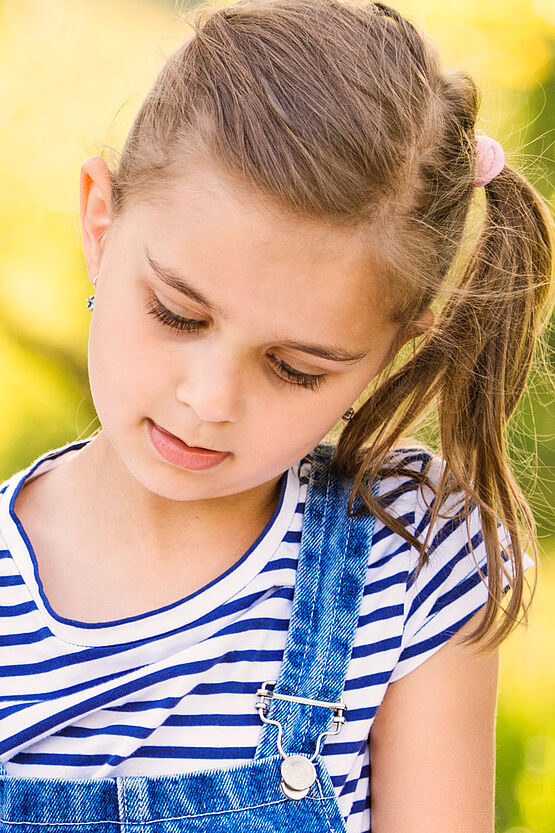
Diarrhoea
Defined as more than three loose or liquid stools a day, diarrhoea is one of the most common health problems affecting children worldwide.
The information on this part of the website is intended only for health care professionals.I am an expert within the meaning of Act No. country xy. I herewith confirm that I am a professional according to this definition.
Unfortunately, as you are not a health care professional we cannot provide you this information.

Many children will suffer from constipation during their childhood and teenage years. In many cases, no organic cause can be found – it is then referred to as functional constipation.
In children and teenagers, constipation is often caused by insufficient fibre in their diet, a low intake of fluids, or a course of medicine. But as we know, our digestive system and intestinal flora is also affected by our emotional and mental well-being, something that can be subject to ups and downs during our childhood and teenage years. As such, the cause for constipation could also lie in emotional stress, a change in circumstances, travel, or bad mood.


Most of us don’t feel very comfortable talking about our bowel movements and children and teenagers can be even more reluctant to speak about any problems they might be having.
So, besides the key symptom of having two or fewer bowel movements a week, it is good for parents to know about other signs of constipation. These could include abdominal swelling and pain, reluctance or even avoidance of going to the bathroom, traces of stool in their underwear, or signs of distress during bowel movements.

Constipation may require some changes to a child’s diet like adding more high-fibre foods such as fruits, vegetables, and legumes.
Additionally, parents should encourage them to drink plenty of fluids, ideally water, and increase physical activity. Constipation can alos affect the intestinal flora. So, it could be a food idea to include supplements with lactic acid bacteria in their diet. So, it could be a good idea to include supplements with lactic acid bacteria in their diet. Probiotic bacteria such as Limosilactobacillus reuteri Protectis help to colonize microbiota in the digestive tract.

Defined as more than three loose or liquid stools a day, diarrhoea is one of the most common health problems affecting children worldwide.

During this time of their lives, children are constantly experiencing new things and embarking on new adventures. New surroundings, new friends, new experiences - every day, children see and learn something new. As they make their way through school, their bodies are continuously confronted with new microbes.

While a tummy ache now and again is a normal part of childhood, a child suffe- ring from recurrent stomach pain could have functional abdominal pain (FAP).